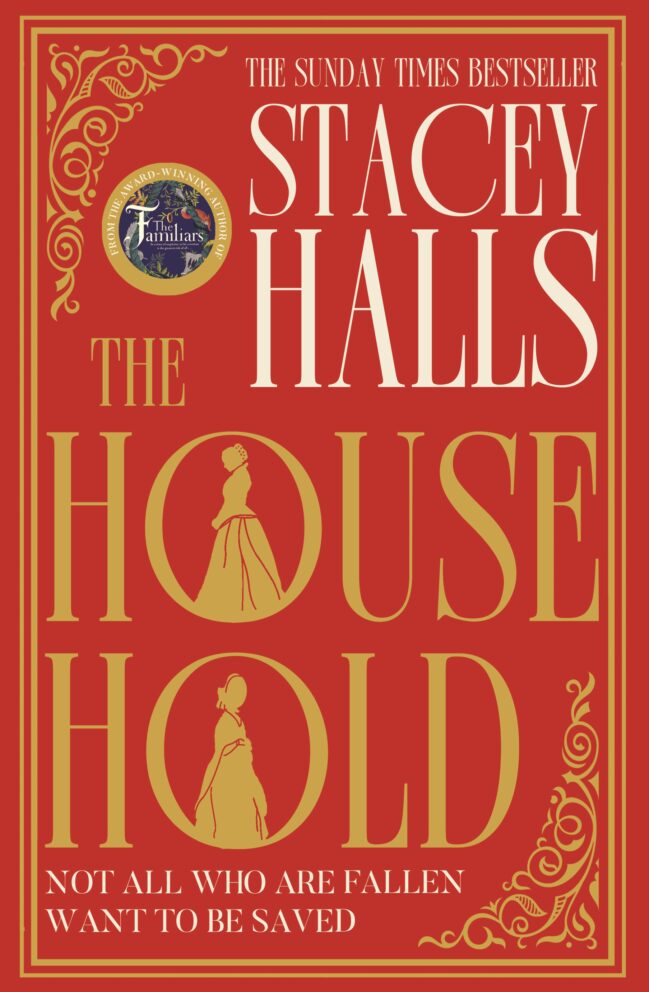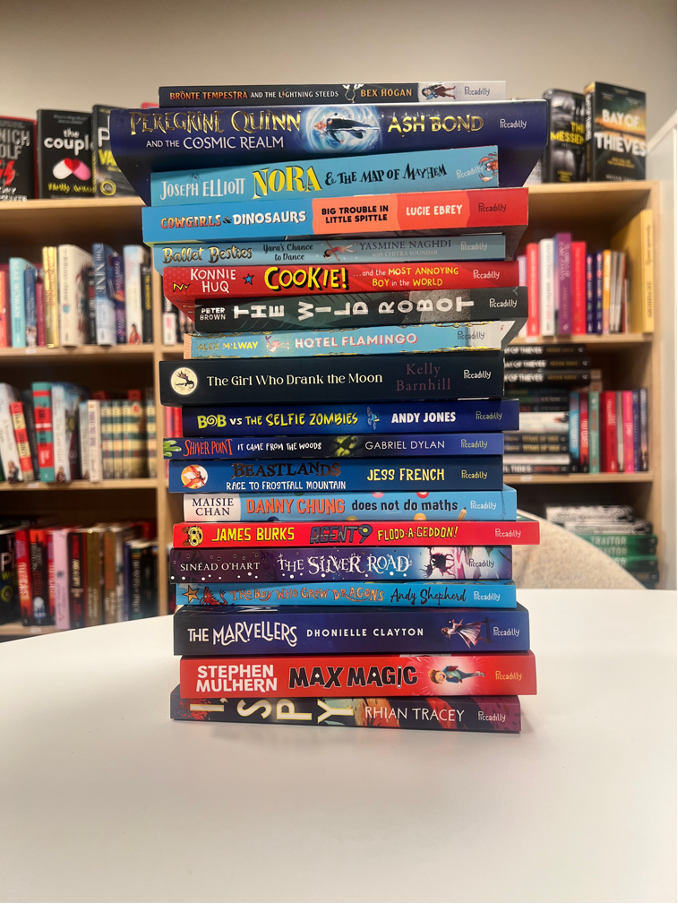I just loved how full of life this house was, how its inhabitants didn’t live by the codes of the day and had to work out ways of surviving. I think Dickens was expecting a band of grateful, fragile kittens but instead he got feral cats.
The internationally-bestselling Stacey Halls makes her much-anticipated return with her captivating new novel The Household (Manilla Press). Set against Charles Dickens’ home for fallen women, her novel weaves together the lives of those who came to call Urania Cottage home and the people who struggle to hold the enterprise together. Intricately plotted, exquisitely written and bustling with life, readers are invited to unlock the many secrets of The Household.
We spoke with Stacey about the writing of the novel, the inspiration behind it, and bringing the stories of these unsung women to the fore within its pages.
When did you first come across Urania Cottage, and how did the idea for The Household develop?
The Household is based on Charles’ Dickens’ home for fallen women that he set up in Shepherds Bush in the 1840s with his friend Angela Burdett-Coutts. He wanted to reform women who had fallen on hard times, who were coming out of prison or sex work or who were homeless.
I came across Urania Cottage in a biography of his, and have constructed a fictional story about it that loosely follows the events of David Copperfield, which was the first novel he wrote after establishing the house. There are fallen women in that novel and I felt like a detective, trying to spot things he might have used from the real women’s stories. Urania Cottage had mixed success; I think he was underprepared for the reality of dealing with a bunch of scrappy young women who had had to find ways to survive, and who weren’t exactly grateful for his charity.
Can you tell us about the research process? How did you go about digging up information on the cottage and the women who lived there?
My main reference was Jenny Hartley’s book Charles Dickens And The House of Fallen Women, but all the goings-on at the house are in Dickens’ letters to Angela Burdett-Coutts.
He couldn’t resist telling her all the drama, and as its benefactor she was one of the few people who knew about Urania Cottage, as he kept his association with it out of public knowledge. It would have been quite controversial at that time. There are so many anecdotes and stories about what the housemates got up to: stealing clothes and running away, breaking into the cellar and drinking all the beer, arguments and personality clashes. He had just as much trouble with the superintendents: there was a high turnover. I’ve used a few in the novel, such as one housemate passing letters over the fence, and one being “caught” with a policeman downstairs in the early hours, and one running away with a sack full of dresses and being caught and sent back to prison.
I just loved how full of life this house was, how its inhabitants didn’t live by the codes of the day and had to work out ways of surviving. I think Dickens was expecting a band of grateful, fragile kittens but instead he got feral cats.

You’ve previously said that ‘for too long women have existed in the margins of history, and I feel it’s my duty to bring them out.’ How important was it for you to tell the stories of the ordinary unsung women who would have inhabited the house at the time and to bring their voices to the fore?
I don’t write from a place of wanting to give marginalised people a voice, as that sounds a bit worthy. But I’m genuinely interested in their stories. I more want to bring them to life and share them than speak for them.
I love when people say “I had no idea about that”. Angela Burdett-Coutts, for example, is the opposite of a marginalised voice; she was an incredibly privileged heiress and the richest woman in the Victorian era. She even lent money to the queen. She made giving her money away her life’s work; she built housing for the poor, monuments, even cattle troughs so all the animals passing through London could have a drink. But nobody has heard of her. Urania Cottage was her idea and Dickens had the energy and passion to implement it.
Angela Burdett-Coutts is one of the great philanthropists of the modern age. It’s fascinating to see this version of her at the start of that journey. Where is she in her life when we meet her?
She is 33, her parents are dead and she lives with her companion Hannah Brown and Hannah’s husband. She hasn’t married or had children. She married much later in life, in her late 60s to a man in his 20s. The novel takes place a decade after her inheritance, which was a controversial one. Women didn’t inherit in those days but her grandmother thought the young men in the family would fritter away the Coutts fortune. She made a smart decision.
Angela was a worthy recipient of the inheritance and did a lot of good. She would have liked to have been more involved in the bank but her role was ceremonial. When she came into her inheritance aged 23 a man called Richard Dunn began paying her unwanted attention, and then stalking her. He followed her around the country, booking rooms in the same hotels, wrote endless letters and attempted to sue her so she would have to face him in court. He was jailed several times for disturbing the peace but this was prior to stalking laws. He tormented her for about 18 years in total.
It’s a genius move seeing Charles Dickens in a cameo role – seen, but never central – throughout! How much fun was it slotting the writer into the narrative?
I knew I didn’t want him to feature as a character but I thought it would be more difficult than it was to keep him out of the narrative. The women quite comfortably took centre stage and I didn’t really think about him. I wanted him to have a presence, just not an overbearing one, so they mention him a few times, and the doorbell rings at the end of a scene or he’s just left as a scene begins. I think part of it was my own anxiety at how I would handle him, not that I think he’s a demi-god, but it would seem bizzare to just have “said Charles” etc.
Your books often weave in hair-raising moments of gothic horror or the uncanny. Has horror always been of interest? Could you see yourself writing further in that genre?
I do love a touch of the gothic, rather than horror. I’m such a wimp I can’t read or watch anything properly scary.
The Household may be set over 150 years ago, but it is packed with very modern themes, asking questions of gender politics, rehabilitation, prejudice and stigma towards sex workers and prisoners. How important is it for you as an author of historical fiction that your work speaks so pertinently to the modern day?
It’s actually not important to me. I never think about themes or modern interpretations of my books; I don’t try and “say” anything. There is no message. I’m just there for the story, and readers will take from it what they will.
Obviously some of the the issues I deal with are interesting and probably quite fascinating from a modern perspective, for example stillbirth leading to an accusation of infanticide. I suppose that could still happen in some countries such as the US, which is outrageous. And there is a death that takes place at the house, the cause of which would likely be picked up and the life saved today. More often I find myself shocked and outraged at the infallibility of medicine than anything else! Like, if only antibiotics had existed most of the Brontës wouldn’t have died…


